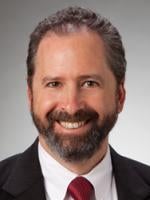In an important win for hospice and other health care providers facing claims under the False Claims Act (FCA), a federal court in Alabama gave a summary judgment victory last week to hospice provider Aseracare Inc.
Key Takeaway
A difference in medical opinion between the Government’s expert physician and the physicians who certified a patient’s terminal illness did not establish the required element of “falsity” under the FCA.
Why this is Significant
This ruling is not limited to hospice providers, as the opinion states “[t]he court finds that contradiction based on clinical judgment or opinion alone cannot constitute falsity under the FCA as a matter of law.”
About the Case
The United States, based on claims from former employees, alleged that Aseracare violated the FCA by submitting Certifications of Terminal Illness (COTIs) to obtain Medicare coverage for hospice care that did not accurately demonstrate a prognosis of a “life expectancy of 6 months of less if the terminal illness runs its normal course.” The six-month terminality prognosis establishes eligibility for hospice services, and while coverage does not end if the beneficiary lives beyond that time, many FCA hospice cases have been that these COTIs overstated terminality to establish initial hospice eligibility. The Court found, however, that the only evidence the US provided to prove that the COTIs were objectively “false” was the testimony of its own medical expert who reviewed the medical records for the patients at issue, years after the certifications had been obtained during the ordinary course of treatment. This evidence was insufficient, according to the Court:
When two or more medical experts look at the same medical records and reach different conclusions about whether those medical records support the certifying physicians’ COTIs, all that exists is a difference of opinion. This difference of opinion among experts regarding the patients’ hospice eligibility alone is not enough to provide falsity, and the Government has failed to point the court to any objective evidence of falsity.
To rule otherwise would “totally eradicate the clinical judgment required of certifying physicians” by Federal rules and regulations.
In addition, the Court noted that the statements of the Government’s own experts supported this conclusion. One expert changed his own opinion on some of the files in question over time, testifying that he was “not the same physician in 2013 as [he] was in 2010.” Another stated that different doctors can reach different conclusions about a patient’s prognosis and “neither be right or wrong.”
What this Means for Providers
This is a welcome ruling for hospice providers, who have found themselves under heavy regulatory scrutiny in recent years, often fighting the Department of Justice’s challenge that their prognoses of terminal illness (obviously, a difficult and at best imprecise prediction of future life expectancy) were incorrect. Providers should be pleased with this result. Many providers throw in the towel when faced with expensive defense and expert costs and daunting penalties provided by the FCA. This case demonstrates that by challenging the government’s expert opinions and digging in its heels, the defendant gave the Court a lot to consider and ultimately prevailed. And, while this is not the first time a court has held that a difference of opinion is not the making of a FCA violation, Aseracare is another strong ruling that can be cited in any healthcare FCA case when the false claim alleged is not straightforward billing fraud or failure to deliver goods and services.
Needless to say, we expect the US to appeal the District Court’s ruling. Stay tuned!
And the mathematicians and philosophers out there will appreciate the Court’s epigraph at the beginning of the opinion, quoting Blaise Pascal: “Contradiction is not a sign of falsity, nor the lack of contradiction the sign of truth.” Touché!






 />i
/>i

